6x6: Portland illustrates the concept of six degrees of separation – the theory that everyone in the world is linked by a chain of six or fewer people – within the city of Portland, Maine.
Each person profiled is connected to the next person in the chain and so on.
The first interviews were recorded in 2003 and 2004.
The update interviews were recorded 20 years later.
For more background information about this project, see this previous post [here].
THE PROCESS
First, I reached out to someone in the city to record an interview about their life.
Next, I asked them to connect me with a “weak tie” or acquaintance of theirs - not someone they were close to or saw every day. I wanted each new connection to catapult the project (and me) into new social networks.
Then, I’d meet this second person for an interview, and ask them to connect me to an acquaintance of theirs, and so on, until I had six people in a pathway.
I gathered interviews for six pathways, 36 people in total.
PROLOGUE
Social media platforms like Facebook and Twitter would make the concept of “six degrees of separation” a quaint relic from the early 2000s, though the concept has been around for almost a hundred years.
In his 1929 short story Chains, Hungarian writer Frigyes Karinthy theorized that the world was more connected than it had ever been. Could he and his friends use their contacts to contact, for example, a famous Swedish writer? Yes, they decided, within five connections. They tested the five connections theory with lesser renowned people, like an ‘anonymous riveter’ at the Ford Motor Company - still with success.
The idea worms its way into his thoughts:
“The strange mind-game that clatters in me all the time goes like this: how can I link, with … at most five links of the chain, trivial, everyday things of life.
How can I link one phenomenon to another?
How … can I tie up the part with the whole?”
I’m not sure where Karinthy was headed there - what were these everyday things and what was the purpose of linking them? But it seems that by linking disparate phenomena together, he was trying to create a connected narrative with an obscured meaning he could ponder and figure out.
I wish I had framed the chain from Betsy to Alex with a clear theme to give it an intentional narrative, as Karinthy suggests. What do these stories collectively say about life in a specific place at a certain time? It’s not clear.
Back then, I wasn’t interested in finding the similarities between two people - I wanted to find what was unique about them. If I could show the city as an interconnected web of diverse life experiences - the value of their story all weighted equally - I could feel I had a place in it.
The Twenty Years Later conversations add a new idea on top of the earlier project. It builds off the original concept of illustrating how individuals are linked within a community and narrows to a question that resonates with the work I make now and who I am today:
How do we incorporate the past versions of ourselves into who we are today?
What do these two conversations recorded twenty years apart have anything to do with each other?
How do you tie up these parts with the whole?
PATHWAY #1
October 2002
While rushing to the post office after work, I was thrilled to bump into my former co-worker Betsy. She had recently started a new job and I missed her fun and quirky energy in the office. These sidewalk moments happened all the time in Portland and made me appreciate living in a walkable city. Leave the house and you’re guaranteed to bump into a friend, a crush, or a friends’ crush.
Betsy and I chatted and I vented about feeling uninspired at work. She told me about a $1,000 artist grant sponsored by a local coffee shop, Coffee By Design. The deadline was the next day. I put together an application that night. When I got the grant and started the project a few months later - I thought it was appropriate to ask Betsy to be the first 6x6 interview.
One night in January of 2003, I stopped by her apartment with my microphone, recorder and Polaroid camera.
#1. BETSY MACDONALD
BETSY: My name is Elizabeth Lane McDonald, but my nickname's Betsy.
I'm from St. Joseph, Missouri.
A friend of mine said that throughout Missouri, towns are either Southern or they're not. And he thought St. Joseph was a really Southern-feeling town. I had to agree that St. Joe, even though it's in the northwest corner, seems pretty Southern.
I asked if growing up in town with a Southern-feeling — did she still feel distinctly Mid-Western?
Listen below to her charming response:
Betsy had been at her new job for a few months. The novelty had worn off and she was bristling at the monotony of her days.
BETSY: Right now one of my goals is just to kind of live a more magical life. I wanna have a more romantic existence. Cuz right now things are pretty structured and a little bit mundane and I feel cagey.
She was worried about getting stuck and feeling trapped at a job.
Would she be able to provide for herself and a potential future child while still having a life of flexibility and creativity?
Talking about the future put the conversation in a tailspin, so I paused to shift topics.
The lull prompted Betsy to admit she felt awkward being interviewed.
BETSY: Really, when you’re interviewing someone, what is it that you want to know? Like, what’s interesting? Sometimes… I think nothing is interesting.
EVAN: The first thing that comes to mind is… I want to know what makes your human experience unique?
BETSY: I have a very dim view on that. Sometimes I think it's not unique. Sometimes I think it's no big deal, this life that we have.
EVAN: Ok. Well. Tell me about something that happened to you recently that made you ponder something new about yourself.
Immediately, she launched into a story about a recent Halloween costume: her own gravestone.
Betsy had recently moved to the East Side on Munjoy Hill and was getting familiar with the people in her new neighborhood. Though she loves a lot about the city, she wasn’t sure she would stay in Portland much longer.
BETSY in 2023
Betsy was also the first 6x6 person I spoke with in the new batch of 2023 interviews. It wasn’t until later that I realized her shirt in this Zoom screenshot is almost identical to the one she is wearing in the Polaroid from twenty years ago.
BETSY: Hi, my name is Betsy Tesh and I'm 47 years old and I live in Portland, Maine.
Betsy and I had kept in touch over the years. I had recorded video at her wedding, but it had been about ten years since we last had a conversation.
EVAN: So, Betsy… Tell me everything that’s happened in the last twenty years!
BETSY: Uh, what has happened to me? God.. Gosh, I mean so much, right?
I played Betsy a few clips. How did the Betsy of 2003 sound to the Betsy of 2023?
BETSY: I don't remember much, and I don't document my life. So it's honestly a gift in some way, like this view into my past that I don't keep for myself.
Was she still seeking a more magical life, a more romantic existence?
Since 2003, Betsy had a long career selling and marketing home decor at Angela Adams, the textiles job she had just started when I interviewed her twenty years ago.
A few years later, she met Steve. They were married in 2013, and built a home together. The universe, she said, had been very kind to her.
With one hiccup.
Betsy’s relationship with Steve is a stabilizing force. He is a curious and collaborative partner that has helped her manifest creative projects and a home that she wouldn’t have achieved on her own.
Currently, Betsy is back in school studying horticulture. She’s brainstorming ways to apply the principles of permaculture to a few business ideas, and plans to start her own company within the year.
Back in 2003…
I asked Betsy to connect me with someone in the city who she knew, but not very well. Someone who would have friends that she wouldn’t know in the city.
Betsy sent me to Elliott, whom she knew during childhood in the Midwest.
They grew up on the same street in St. Josephs, Missouri, though Elliott’s family moved to Kansas City and they lost touch.
Betsy’s father phoned her up one night after he found out that Elliott Pitts had moved to Portland, and they reconnected.
BETSY: I remember her babysitting me, but she's not that much older than I am. So it's probably that we just hung out. I remember painting our faces like we were members of the band KISS.
#2. ELLIOTT PITTS
ELLIOTT: I remember Betsy from growing up. There were a lot of children in our neighborhood and we did a lot together. Just silly childhood stuff that had nothing to do with television.
Elliot’s life appeared to revolve heavily around community service.
She had taught in Ghana with the Peace Corps after college. Now her job was raising money for a local hospital. She volunteered with Big Brothers Big Sisters of American and was on her third little sister. She also volunteered for the Make-A-Wish Foundation.
I wanted to know about the memorable wishes she had helped grant.
Her favorite wish she helped come true was for a young girl with cancer.
She had just finished a wish for a girl who wanted to be in a movie. Elliot secured her a role as an extra on the 2003 film Bringing Down the House with Steve Martin and Queen Latifa.
I visited Elliott not long after she moved into her first home. She was now feeling “a bit too settled” in her life, and joked wistfully that she still had a dream to move back overseas to live and work.
ELLIOTT in 2023
ELLIOTT: I'm Elliott Pitts. I live in South Portland, Maine, and I'm 54 years old.
Elliott was still living in the home I first visited. The whim of moving to Europe had long evaporated. She was also still at the same job. Her life had been surprisingly consistent.
She confided that she was worried before the interview that not enough had changed in the last twenty years to warrant an update.
ELLIOTT: Things have not changed tremendously. And I think ultimately that's kind of the goal is to be in a place that you enjoy and love but still offers variety and adventure. But it feels odd that it's not changing as rapidly. So I think it's easy to chalk that up to you're not doing it right when I think really it's the secret goal.
Elliott’s volunteerism hasn’t slowed down either. As a faithful cradle Episcopalian, she usually says yes to volunteer opportunities that she finds through her church.
For Elliott, there are times when being in service to others feels like what is referred to as a “thin place” - where the space between everyday life and the spiritual world (sometimes called Heaven) is tissue paper thin.
As busy as she is with church and volunteering, Elliott still makes time for dating.
During Lent, she gives up being single for 40 days of dates. Which can be difficult in such a small town.
A recent spate of dates during Lent were memorable because her date had a habit of wearing a specific article of clothing.
Elliott said she loves being in relationship, but is also very content with her life as is.
ELLIOTT: I'm in my fifties so my life is really full. And if I'm dating people who are in theory, in their fifties, their lives are also really full. And often they're divorced. It's perfectly reasonable that you'd be dating someone who's divorced and has kids. And so it just really needs to be someone to like worth up-ending your life for. And I love kids. I think regret wise, I just always assumed I would have kids, so like would welcome that.
Back in 2003…
Elliot introduced me to Jimmy.
Jimmy was an actor in a play that Elliott helped produce at a community theater.
ELLIOTT: On the last night of the play, we were all closed down and we had a party. I was walking through the backstage area and Jimmy asked me if I'd like a tequila shot. And we've been friends ever since.
#3. JIMMY PAYNE
JIMMY: Elliot's not raunchy, she's very classy. But she's hysterically funny. And I'm just a huge fan. I love spending time with her.
Jimmy sang Elliot’s praises as I began our recorded conversation in his apartment on Grant Avenue. The living room was painted red, and the walls were covered with mismatched frames of art and photography. The decor vibed with his bold personality.
“Any place I move into within minutes resembles a brothel in Storyville in New Orleans,” Jimmy told me. “I do love my feathers.”
Surprisingly, Jimmy thrived in a very conventional job as an insurance claims investigator.
JIMMY: We review claims for the company that does workers' comp for Platinum plus, the local strip club. You can actually collect workers’ comp if you slide down a stripper pole, hit your face on the floor and knock your teeth out. Workers’ comp will cover that.
Most of Jimmy’s job was on the phone. He told me stories about scammers and nightmare clients that made him want to quit - and about a series of calls with a guy who had six months to live that reinvigorated the job with a sense of purpose.
He had a big brother quality to him – like he wanted to teach me something new about life. At first, it felt as if he was entertaining me at a cocktail party. But by the end, it felt like he was telling me something unexpected and important about himself.
JIMMY: Where I grew up in Brunswick, Maine - which I'm really proud to admit - was a little rinky dink trailer park. It was just like every other trailer park in every David Lynch movie that ever had a trailer park in it. You know, it had dirt roads, overgrown lawns, old ugly dogs that were blind on rusty chains that had worn away all the grass.
JIMMY: And I was always embarrassed cuz I always thought that our trailer was the smallest and trashiest. I remember the trailer park as being seedy, and all the kids that lived there were always the kids that were caught stealing or getting in fights in school. I so wanted to be like them except I was the little Christian boy and was the outsider.
JIMMY: A lot of my friends would comment on the fact that they'd never seen my house. One guy in particular who was my best friend finally was like, you can't come to my house anymore until I get to come to your house. So I took him to my house and I felt such intense, deep shame about it, even though he was, you know, fine with it. Most kids are. He didn't say, like, “Dang, your family's poor.”
Now in his 30s, Jimmy wears his trailer park roots as a badge of honor.
Toward the end of our conversation, we talked about getting older how and how he envisions where his life is headed.
JIMMY: I do really like where I am, and really like where I'm going. Even though I have blinders on as to where I'm going. I have no idea where I'll end up in two years or five years because it changes so much with me. The outcome is uncertain and I'm okay with that.
JIMMY in 2023
“The trajectory of my life when we met - it was only up. Things were exciting, powerful, I had deep friendships. The Jimmy Payne that I am now, was not the Jimmy Payne I thought I would be.”
In the years following our interview, Jimmy’s career had sky rocketed. He was being flown all over the country for his expertise and making a lot of money.
He decided to get a gastric bypass surgery that would take 100 pounds off his frame.
With his beloved parents and dog gone, Jimmy slipped into pessimism and despair. A glass of wine after work turned into a bottle of wine, which turned into drinking wine on his lunch break. He lost his job and by 2016, his 12 year relationship had ended.
One day while he was driving on the highway, his retina detached and he rear-ended another car. He was confused and scared, and also drunk. He lunged at a police officer at the scene of the accident and spent a time in prison. Later, he moved to a sober living home but continued drinking. He ended up at the hospital three times over six months and was told his liver was failing. He needed help.
He was the only 48-year old at the nursing home. Everyone else was in their 80s. He was the “sassy homosexual pariah” and often snuck off the premises to buy a fifth of vodka that he would hide under his bed. He’d gather a few women from the nursing home together for cocktail hour.
Jimmy’s focus was on whatever he needed to do to get out of the nursing home, while continuing the behavior that got him in there in the first place. He had accepted that he would probably die inside the nursing home, and so he wanted to have fun and make people laugh while he was there.
JIMMY: I was bright siding it. I'm like, everybody has dementia. I only have to know one joke. Everyone's gonna laugh every time.
But living day to day with people experiencing dementia was challenging.
Even though he was a resident there, it sounded like he was taking on the care taking roles of a staff member at times. At the same time, he would challenge the staff by advocating for the rights of the residents.
But who was advocating for Jimmy?
He got a kick in the pants to change his life from an unexpected source.
Jimmy started scouring the paper for apartments and gathering resources to move, which he finally was able to do with the help of Lisa, one of his oldest friends from 7th grade.
JIMMY: If she showed up on my doorstep and said “cut your head off,” I would do it.
Jimmy now lives with his two cats in a subsidized apartment in Topsham for people with no income. He is managing his substance use and “the parasitic twin in his brain that leads him to dark horrible places.”
His focus is on the friends and family who have stuck by him.
Back in 2003…
Jimmy connected me to Ron… his old landlord.
Jimmy had to move suddenly after a bad break up and Ron let Jimmy spread his deposit out over a few months while he got his life back together.
JIMMY: One of the things that Ron used to do, he used to sing opera, like first thing in the morning. We shared a common wall, his dining room and my bedroom. So I would always awaken to, you know, these arias that he would perform.
#4. RON SPINELLA
Ron grew up singing in church choirs in an Italian-American neighborhood on the east side of Milwaukee. In what feels like a scene from an Italian village, he told me he that one of his altar boy duties was to manually ring the church bell to bring people to mass on Sundays.
His tight ties to his Italian-American community kept him in and around Wisconsin for most of this early life.
Ron: I did my undergraduate work in Milwaukee. I did my graduate work in northern Wisconsin. So I'm pretty much, you know, inbred Wisconsin person.
But after getting his Masters, Ron was feeling restless for places outside of Wisconsin. He started having a recurring dream about living in a city by the sea. The thing was, he already lived in a city by the sea, Milwaukee.
This was cat nip for someone who read a lot about Carl Yung in grad school. Over time, he pulled out more details from the dream. This dream city was alot hillier. And for some reason, he was reminded of a classmate who wore funny-looking books with rubber on the bottom and red flannel shirts. He was convinced he was dreaming about Maine.
RON: I said, who's Marv? He says, that's the fellow we were talking about. He's in Portland, Maine, and he's got an opening for a chief evaluator…. the job I was doing.
Ron looked at Jack and said ‘That’s it!” and called Marv right away. In the meantime….
Ron moved to rural Maine in the 1980s and eventually to Portland with his wife, Christine. In 1997, they opened the Three Fishes Art Gallery on Cumberland Avenue and were beloved members of Maine’s art community for many years.
RON in 2023
Ron passed away in 2019.
Back in 2003…
Ron introduced me to Mayra, the daughter of Richard, his next door neighbor.
RON: One day, Richard gestures me to come over across the street. He says, “Go look.” And I went into the living room and there was this beautiful little baby in there. It was his new grandchild.
#5. MAYRA ZELEYA-PAZ
MAYRA: I’m Mayra Zeleya-Paz. I'm 17.
MAYRA: Before I got pregnant, I was going to King Middle School and in the last year of sixth grade my mom told me that because I was being really rude and going to the streets all the time, she was sending me to Honduras. I really didn't wanna go. She took me and left me there for over seven months.
MAYRA: I met this guy, his name is Delmer. I met him through my cousins. And he was really nice to me. We went out for almost like five months and then got closer.
After Mayra found out she was pregnant, she moved into the home of Delmar's aging mother and helped her with food and cleaning. When she was four months pregnant, she moved back home to Portland. And later, when her daughter was four months old, Delmar moved in.
MAYRA: In our culture, if you're pregnant, your family really supports you with everything. Me and my mom, we're not really close. My mom has a little bit of an attitude and I don't like that. But whenever it comes to this family thing - if you need support and she's really there for you. Even though we know we don't get along that much.
MAYRA in 2003
I am still searching for Mayra.
I called some disconnected phone numbers.
I was able to reach her father, but Mayra is currently not in touch with her family.
Back in 2003…
Mayra connected me to Alex.
She had a class with him at Portland High.
MAYRA: He showed everybody his identity when he was really young in school. And I think that was really hard because kids could be really cruel when they know that, you know, you're different from them.
#6. ALEX CUDDY
ALEX: My name is Alex Cuddy. I was born in Portland, Maine. When I was six months old, my parents were divorced. I lived with my mom and most of the time switched off between the two. In 1991, my father won the lottery. 3.3 million. And then pretty much had nothing to do with me after that.
Alex lived mostly with his mom up until 2001, and then his father for some stretches of time. But he came out to his mother first.
A month after Alex came out, his mother kicked him out of the house. He moved in with his uncle, a born-again Christian who didn’t make Alex’s life any easier. Alex said his uncle was mean to him and called him names. He decided to move in with his father. Before he did, Alex sat down with him and his father’s new wife for a talk.
ALEX: And told him I'm gay and I'm gonna be gay. They're like, “Oh, it's cool, we accept it,” and so on and so on. Finally the topic came up when I was talking to my dad and my stepmom. I said “One time my mom said this thing and everything, and they looked at each other like, “Holy shit, you know?”
ALEX: They had a court agreement. They literally had a court agreement that I was not allowed to know that I might have another father out there somewhere. The paternity tests have not been done because they just didn't want to deal with it and they were gonna play it off like my dad was my dad.
ALEX in 2023
ALEX: You know, I'm glad you're doing this. It's just kind of weird like timing because back then it was such a trying time in my life and I feel like I'm at that point again, as a grown man, almost 40. I just kind of hope that this is gonna help me move on or figure things out.
I talked on Zoom with Alex on a muggy humid May day in DC. He was in the basement of an apartment he was crashing at. His dog Julian, a 18 year old dark-haired mutt, sat in his lap the whole time, farting and moaning.
Back then, Alex told me he wanted to go to own his own salon and show everyone he could “make something of himself.” He eventually graduated from beauty school and cut hair in Portland for many years. When he was 25, he decided he needed to get out of Portland.
He wasn’t in the military very long, and he didn’t expand on his time there. He is currently on disability.
A lot of big changes happened for Alex in the last six years.
In 2017, at the insistence of his then boyfriend, he moved out of his rent controlled apartment and moved into the boyfriends condo. A month later, he found his boyfriend’s ad for sex on Craigslist. The boyfriend confessed he had been cheating on him with multiple people since the beginning. But Alex forgave him, and forgave his sex addiction. He moved into the second bedroom and stayed there for five more years.
Then, a double whammy. He lost his job. And his grandmother died.
Her name was Catherine. Alex described her as “perfect and strong.” After her husband died at 48 years old, she had raised 9 kids on her own. She loved everybody, especially Alex.
Not long after his grandmother passed, his ex-boyfriend slash roommate gave Alex another surprising blow.
ALEX: I got in from walking Julian and he looks at me, it was like 630 in the morning on a Sunday. And he goes, “You need to be out by Friday. I go, what? Friday? What are you talking about? He's like, You can't live here anymore. And dude, I'm telling you, as soon as he said that, I had a flashback when I was a teenager being kicked outta my house. I was like, “Oh God, it's happening, like happening again. I know it's happening again. “
Here I am a grown man and I felt like I was a 15 year old kid again.
Alex moved in with a guy he had been seeing - though he only knew him for a month total. He knew that it wasn’t ideal, that it was a mistake in fact. But he was desperate to regain his sense of security.
ALEX: I mean, it all stems from my childhood, I know it does, you know? We go with what we know. I know abusive people. It's what I'm familiar with. It's been ingrained in me that like, I have to give up who I am just so I know that I have a roof over my head.
Within the first week of Alex moving in, they got into a fight.
I played Alex selections from his interview tape from 20 years ago. He was deeply moved to hear himself back then, and the inner strength in his voice.
The tape brought up old feelings and stories.
Alex expanded on a time in high school when he was getting bullied at school and the administration was doing nothing about the constant harassment. It all sounds like an inspirational 80s teen movie where the underdog wins.
Recently, Alex’s dog Julian passed away. He is planning on moving back to Maine to be closer to his core support system - his aunts, uncles and cousins who are still on his side and rooting for him. He said he needs to be closer to people who will build him up again.
WHAT’S NEXT ?
I’ll reconnect with as many folks from this project as I can and record updated interviews about their lives today.
I’ll be posting the other five pathways over the coming months and will eventually produce some interviews from 6x6 for the Recollector podcast.
I’d love to hear your thoughts on 6x6 and which stories resonate with you the most!
Thank you: Kate Sullivan, Justin Hoogs, Austin Mitchell, Daniel Pepice
6x6: Portland was funded in part by Coffee By Design's Rebel Blend Grant







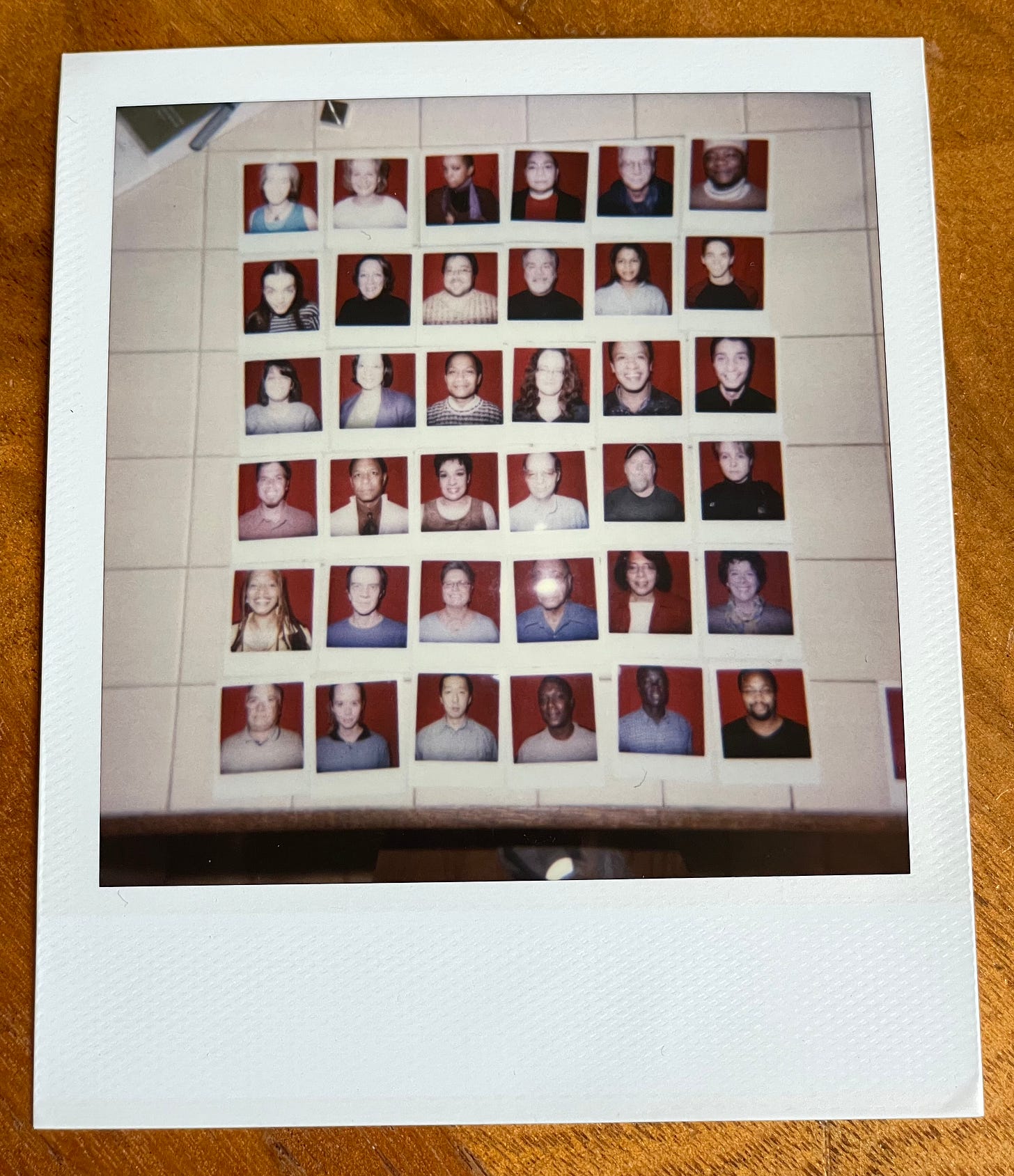














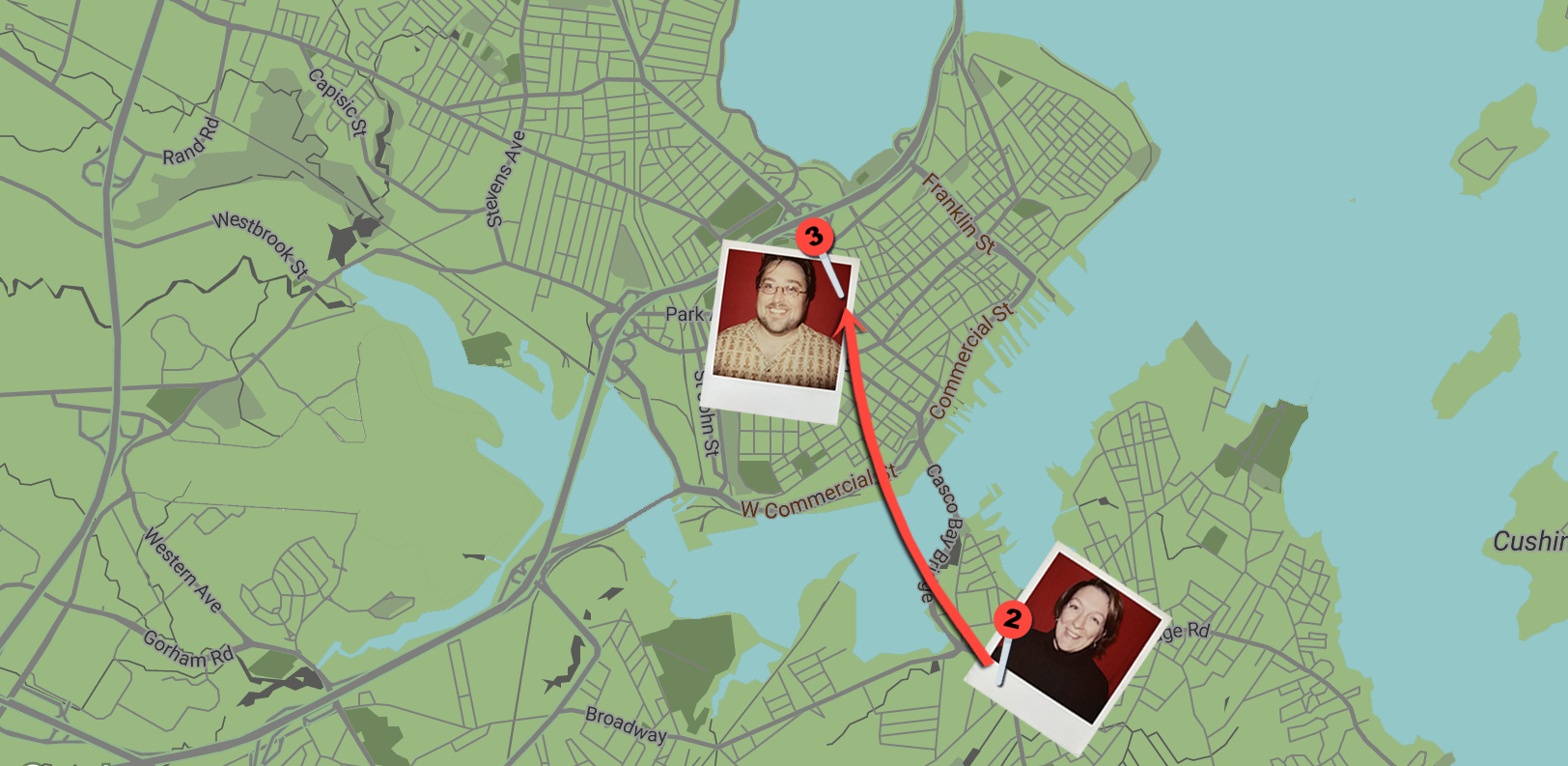





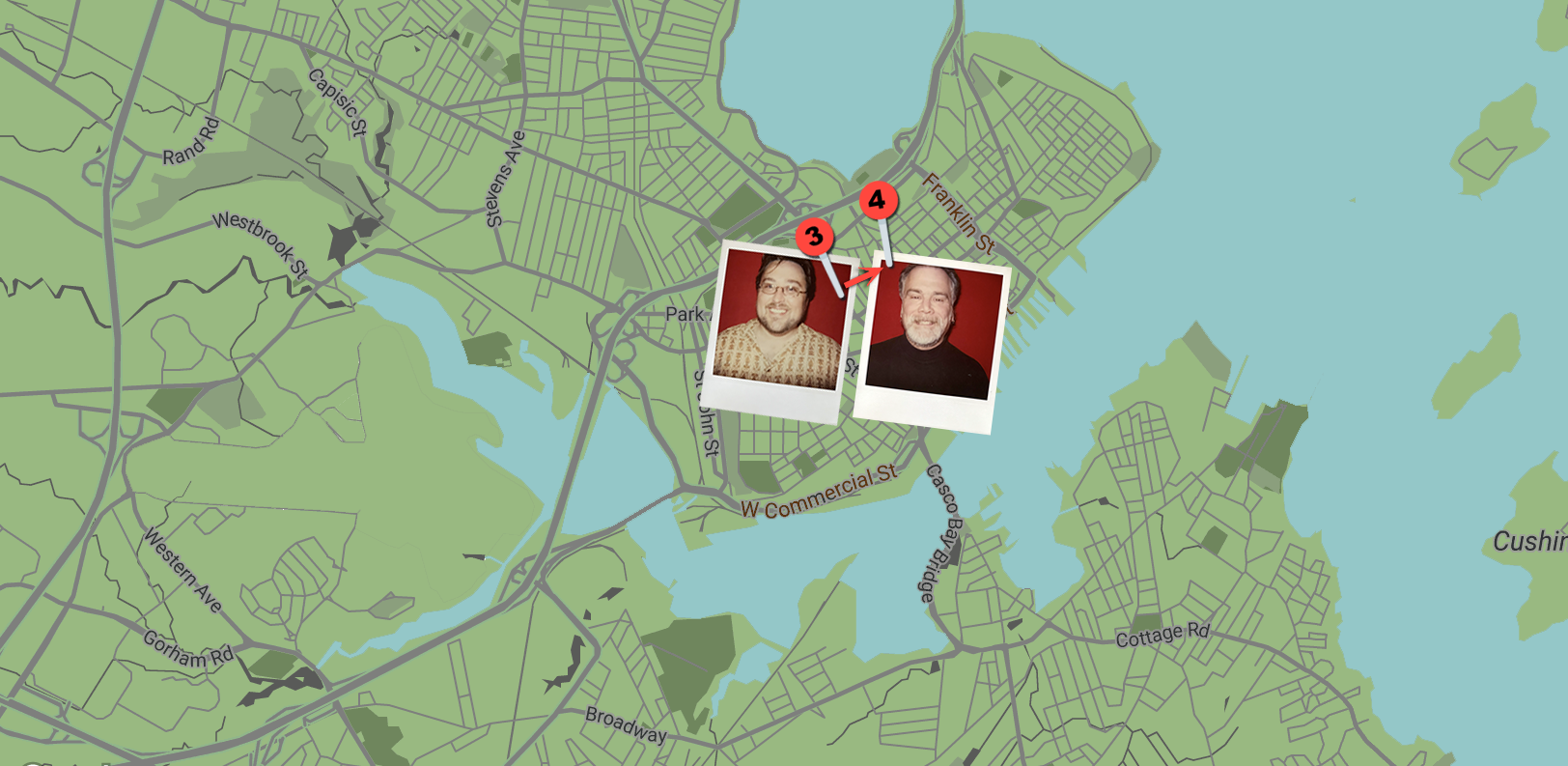









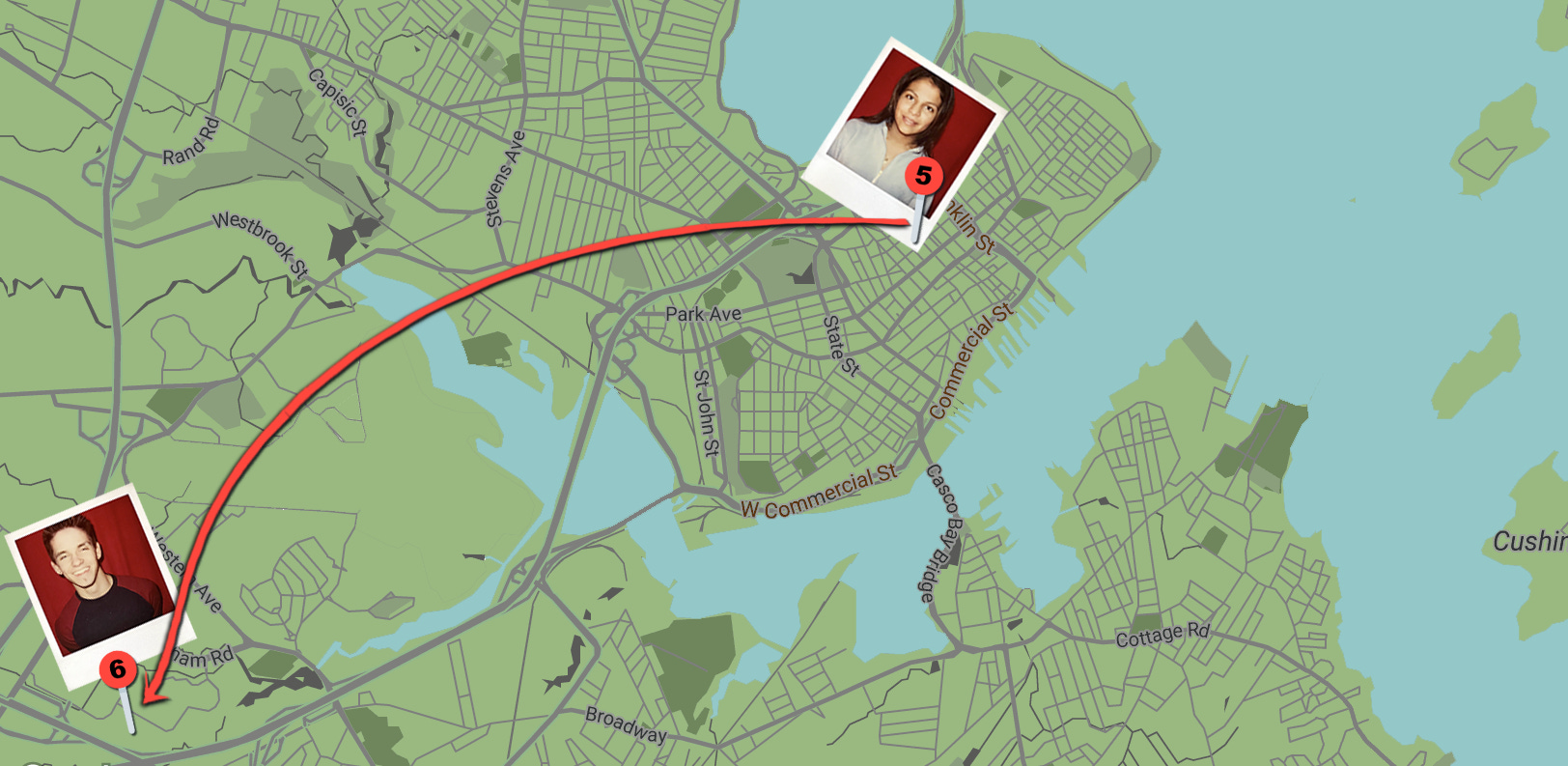

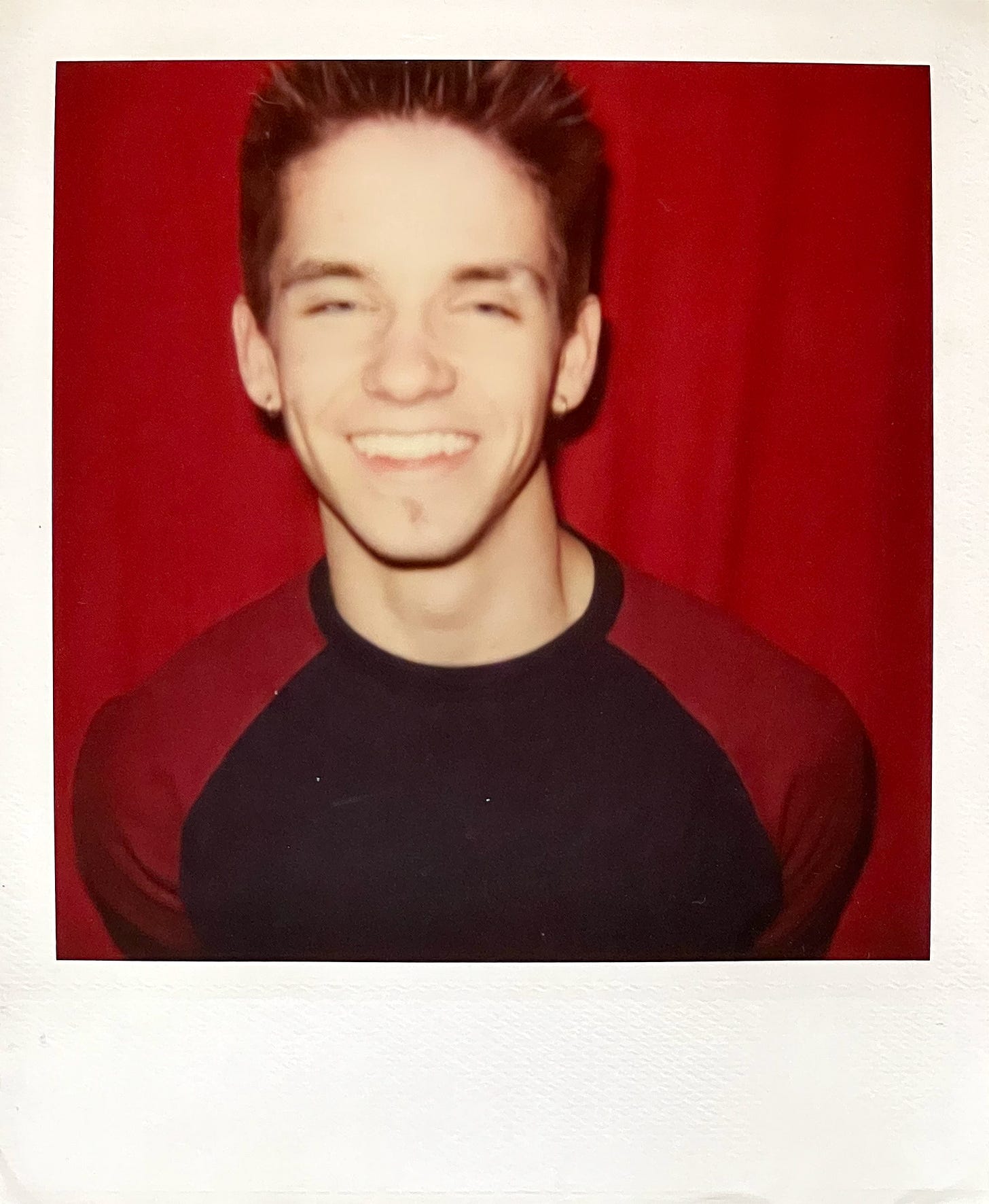




What a powerful series of stories. Thank you for sharing tbem ❤️